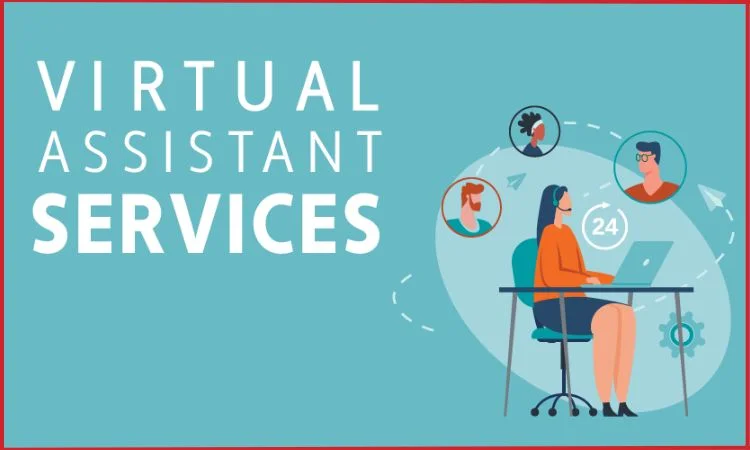Financial independence and entrepreneurial ambition form the most vital features of the life of students in this ever-changing world. Students do not study only to gain degrees but also to learn skills and earn money. This is achieved because the students want to minimize reliance on parents for finances, gain real-life experience, and create a base for future entrepreneurial adventures.

The good news? The combination of technological advancement, innovative entrepreneurial platforms, and entrepreneurship ability can allow one to start businesses without much money. From freelancing opportunities to leveraging existing skills, students can create a revenue stream with little or no investment in multiple ways. The article discusses 15 lucrative business ideas that can be initiated by a student with no upfront costs and that align perfectly with the limitations and aspirations of a student’s life.
Whether turning a hobby into a paycheck or trying something that might eventually lead to long-term professional growth, these ideas are practical, accessible, and proven to work. So, dive in, find your calling, and take the first step toward financial independence while still in school.
| S. No. | Business Ideas for Students Without Investment |
| 1. | Freelance Writing |
| 2. | Tutoring Services |
| 3. | Social Media Management |
| 4. | Content Creation |
| 5. | Blogging |
| 6. | Graphic Design |
| 7. | Virtual Assistant |
| 8 | Dropshipping |
| 9. | Online Surveys and Reviews |
| 10. | Affiliate Marketing |
| 11. | Photography Services |
| 12. | Event Planning |
| 13. | Transcription Services |
| 14. | Podcast Hosting |
| 15. | Language Translation |
1. Freelance Writing

Image Source: Wave Accounting
As the demand for content on businesses and websites increases, freelance writing is an excellent opportunity for students with a good vocabulary flair.
Skills Required:
- Mastery of language
- Creativity
- Research skills and
- Attention to detail.
Action Plan:
- Make profiles on freelancing sites like Upwork, Fiverr, or Freelancer.
- Write samples and make a portfolio on free platforms like LinkedIn or Medium.
- Niche down to blogging, copywriting, technical writing, or academic writing.
Pros:
- Flexibility with working hours,
- Scope to hone writing skills and
- Scope to build a personal brand in content creation.
Cons:
- Getting a client base is time-consuming;
- Deadlines are stringent.
2. Tutoring Services

Image Source: The Tutor Resource
If you have any skill or expertise, then tutoring is the best way to apply that.
Skills:
- Subject area knowledge,
- Ability to be good in comprehension,
- Excellent communication skills,
- Ability to put big ideas into simple words.
Action:
- Contact friends, junior siblings, Chegg Tutors, or Preply sites.
- Free demo classes and solicit testimonials.
- Group classes or even prepare pre-recorded courses.
Advantages:
- Generates higher income,
- Communicates effectively and
- Fulfills self-fulfilling love by sharing learned knowledge.
Drawbacks:
- Time to spend on tuition class.
3. Social Media Management

Source: Big Field Digital
Nearly every company needs a social media professional to engage an audience and give it visibility.
Expertise Needed:
- Know-how of social media networks,
- Creativity
- General marketing.
How to go about it
- Approach small businesses or local brands and offer free trials to prove your expertise.
- Trend updates and tools, whether Canva, Buffer, or Hootsuite, to increase efficiency.
- Charge a retainer for account management after some period.
Pros:
- Opportunity to learn digital marketing
- Chanced to get permanent clients
- Have the opportunity to work on campaign designs
Cons:
- Algorithms keep on changing,
- The negative feedback from the clients
4. Content Creation

Source: LinkedIn
The content creation industry has been changed with the emergence of YouTube, Instagram, and TikTok.
Expertise required:
- Creativity
- Video editing,
- Storytelling
- Consistency
How to go about it:
- Content creation education, entertainment lifestyle, or a tech review.
- Video editing using free resources like Canva InShot and DaVinci Resolve.
- Collaborate with other creators; expand your following.
- Make money through brand partnerships or advertising monetization.
Pros. It provides artistic freedom, exponential returns, and returns for a more extended period.
Disadvantages include audience building takes time, and ensuring consistency with academic pressure is challenging.
5. Blogging

Image Source: BrightEdge
It’s sharing your passion and generating cash by adding some ads, affiliate marketing, and even sponsored posts to the blog
Writing Skills Necessary:
- SEO about a niche niche.
How:
- Begin with blogging sites free using WordPress.com and Blogger
- Then, narrow some niches to travel, clothing, tech, and personal development.
- Traffic builds through promotions and collaborations using social media.
- After some time, move to a custom domain for that professional look.
Pros: Building passive income with the possibility of establishing authority in a specific niche.
Cons: Traffic generation will be slow initially, and continuous efforts are required to maintain the quality of the content.
6. Graphic Design

Image Source: Lili
Business companies always require graphic designers who create logos, banners, and other marketing materials.
Skills Needed: Creativity, knowledge of design tools (Canva, GIMP, or Figma), and understanding the needs of the clients.
Practice:
- Offer free or low-value designs initially to build up your portfolio.
- Display your designs on Behance or Dribbble.
- Reach small businesses, student organizations, or start-ups to work on continuous projects.
Pros: Demand for graphic designers is higher and multifarious works.
Cons: Finding time to complete client work, deadlines, and academic expectations.
7. Virtual Assistant

Image Source: Prialto
Virtual assistants tend to companies or entrepreneurs and perform tasks such as booking, email management, and data inputting
Skills to be utilized: Organizational skills, communication skills, Google Workspace, or Microsoft Office
Process:
- Register on freelance websites and await clients
- Part-time jobs that allow for studying.
- Gradually develop specializations in, for example, e-commerce assistant or social media coordinator.
Pros: Exposed to a range of industries and good administrative experience.
Cons: Dealing with several clients’ demands simultaneously and maintaining professionalism.
8. Dropshipping

Image Source: Shopps.in
Selling products online without inventory management.
Required Skills:
- Knowledge of e-commerce, marketing, and sales.
Implementation:
- Free platforms such as Shopify (with trial versions) can be used to establish an online shop.
- Partner with suppliers to ensure that their product reaches the customers.
- Target popular products and market them through free social media methods.
Pros: A very low-risk business with no inventory cost and scalable income.
Cons: A very competitive business that relies on suppliers regarding the quality of products and timely delivery.
9. Online Surveys and Reviews

Image Source: Z.com
Businesses respect consumer feedback and sometimes pay for online surveys or product reviews.
Skills needed:
- Detail-oriented
- Honest
- Patient.
How to get started
- Register on authentic survey sites like Survey Junkie, Toluna, or Swagbucks.
- Offer reviews of products on e-commerce sites for their reward programs.
- Though not a full-time source of income, it is a good side hustle.
Pros: Easy, flexible, and fast sources to get extra money.
Disadvantages: Minimum pay per survey and more fraud on worthless websites.
10. Affiliate Marketing

Image Source: Smart Passive Income
Promote the brand’s products or services and earn on every sale produced by your affiliate link.
Tools Required:
- Writing, persuasive potential, and
- Know-how of an affiliate network
Process:
- Sign up for affiliate networks such as Amazon Associates, CJ Affiliate, and ClickBank
- Utilize the power of social media, blogs, or YouTube
- Find specific niches and focus on targeting the niche-specific audience
Advantages: It offers a spread of income-generating opportunities and is scalable as audiences grow.
Disadvantages: It relies on continued efforts to attract the audience and clicks.
11. Photography Services

Image Source: Fiverr
Photography is a service that can be earned with a smartphone or even with a camera.
Skills Required:
- Basic photography skills,
- Editing skills, and
- Creativity
Implementation:
- Offers various event, portrait, and even social media-based photography services.
- Free editing options are available from Lightroom Mobile.
- Offers stock photography on Shutterstock or Adobe Stock.
Benefits: Such a service offers artistic expression and can grow into a long-term profession.
Problems:
- Portfolio development
- Marketing of the services in the competitive market
12. Event Planning

Image Source: aaft
Experience Students could use their skills to organize some small events for birthday parties, student meetups, etc
Skills required:
- Event coordination
- Negotiating
- Being creative.
Implementation:
- Start by conducting events for family and friends.
- Use social media to promote what is done to attract clients
- Scale up by working with decorators and caterers, among others.
Advantages: Networking opportunities and leadership skills.
Disadvantages: Dealing with the pressure of hosting flawless events and juggling commitments.
13. Transcription Services

Image Source: CHL Localization
Transcription converts audio files into written text, which is in demand across industries like journalism and law.
Skills Needed:
- Fast typing,
- Accuracy,
- Good listening skills.
How to Do It:
- Find transcription gigs on platforms like Rev or TranscribeMe.
- Use free tools like Otter.ai for help.
- Medical or legal transcription pays much better.
Benefits: Flexibility at work and typing get faster.
Difficulty: Highly concentrated attention with most likely meeting the deadlines
14. Podcast Hosting

Image Source: Google Images
This will host podcasts where you share ideas, stories, or expert views, creating a faithful audience.
Skill needed:
- Storytelling,
- Audio editing
- Researching skills
Implementation:
- Using Anchor or Spotify for podcasters, create podcast episodes.
- Choose a popular topic or even a novel perspective in the narrative.
- Earn money from sponsorships or listener donations.
Pros: Freedom to be creative and join others of similar interest.
Cons: Building an audience and consistency with the content.
15. Language Translation

Image Source: Google Images
Multilingual students can offer translation services to businesses, authors, and others.
Skills Required:
- Proficiency in two languages
- Familiarity with cultural differences.
Process:
- Market yourself on ProZ or TranslatorsCafe and other similar websites.
- Provide translation of documents, subtitling, or business communications.
- Gain goodwill through submitting jobs on time and of good quality.
Benefits: High demand for language services and a broad business scope.
Drawback: It needs extra effort if the jargon or some industry-specific wordings are confusing.
Conclusion
Business opportunities for a student without an investment are not merely a dream anymore but have the potential to open up roads of financial freedom, personal growth, and precious experience. Among these are 15 business ideas, which, in due course, shall prove effective pathways where passion is translated first into skills and then into profit-generating businesses. Thus, students may discover more through pre-existing facilities like the internet and other digital resources by exploring the many ideas, experimenting, and learning what will best suit them.
Remember, success is always a matter of starting small, being consistent, and being open to learning. Any one of these ideas can become something big if it persists and is adapted to. So take that first step, and who knows? It may lay the groundwork for the next major entrepreneurial success story!















